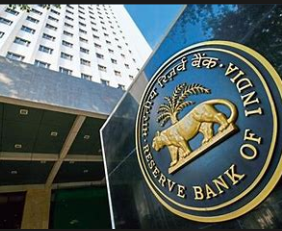In a development that has caused a stir in India’s fintech landscape, the Enforcement Directorate (ED) recently embarked on a preliminary investigation into Paytm Payments Bank Limited (PPBL). The investigation was sparked by allegations of violations related to the Foreign Exchange Management Act (FEMA). PPBL, a partnership between One97 Communications and its founder, Vijay Shekhar Sharma, found itself under the ED’s watchful eye.
The ED’s examination was meticulous, scrutinizing over 50 lakh accounts and wallets associated with PPBL. The goal was to uncover any breach of foreign exchange rules, which could encompass irregularities in foreign transactions or non-compliance with the governing regulations.
Results of Examination
Despite the detailed examination, the ED did not uncover any violation of FEMA. However, it’s important to note that while PPBL was cleared of FEMA violations, there were other alleged violations primarily related to the Know Your Customer (KYC) compliance and other issues. These issues include a lax approach to adhering to KYC norms, processes for identifying ultimate beneficial ownership, politically exposed persons, KYC adherence related to setting up of virtual accounts, and strict monitoring and periodic reporting of suspect transactions to the authorized agencies such as the Financial Intelligence Unit (FIU).
Established in 2017 and based in Noida, Paytm Payments Bank (PPBL) is a homegrown Indian institution. It was granted a license by the RBI in the same year, and by 2021, it had achieved the status of a scheduled bank.
PPBL offers a range of services, including savings and current accounts, complemented by a debit card for quick and convenient transactions. In FY’21 alone, it issued seven million Visa debit cards. Additionally, it has joined forces with IndusInd Bank to provide fixed deposit services.
Reserve Bank of India’s Position and Investor Confidence
While the ED didn’t find any FEMA violation, the Reserve Bank of India (RBI) has the power to act on these other instances of alleged non-compliance. On January 31, the RBI prohibited PPBL from onboarding new customers after February 29 due to ‘persistent non-compliance’. This deadline was later extended to March 15, indicating the seriousness with which the RBI is addressing the issue.
The responsibility now lies with the Reserve Bank of India (RBI) to take appropriate action regarding the other instances of alleged non-compliance. As the fintech landscape continues to evolve, regulatory compliance will remain a key focus area for all stakeholders. The ED’s decision not only vindicates Paytm but also serves as a boost for investor confidence in the company. With the cloud of uncertainty lifted, investors can now have greater faith in Paytm’s commitment to operating within the bounds of the law and maintaining a strong ethical foundation. This renewed trust could potentially lead to increased investment in the company and support its growth trajectory.
regarding the other instances of alleged non-compliance. As the fintech landscape continues to evolve, regulatory compliance will remain a key focus area for all stakeholders. The ED’s decision not only vindicates Paytm but also serves as a boost for investor confidence in the company. With the cloud of uncertainty lifted, investors can now have greater faith in Paytm’s commitment to operating within the bounds of the law and maintaining a strong ethical foundation. This renewed trust could potentially lead to increased investment in the company and support its growth trajectory.
Paytm’s Response to Allegations
In response to the allegations, Paytm stated that it has responded to notices from authorities, including the ED, providing the required information concerning customers associated with the company’s business. The company further clarified that Paytm Payments Bank does not engage in outward foreign remittance.
The RBI’s strict action against Paytm Payments Bank has caused a stir. The halt on deposits and top-ups after February 29 has left customers and merchants anxious. However, RBI Governor Shaktikanta Das assures that these measures, though tough, are to protect customer interests and maintain financial stability. Despite the crisis, he reassures that the system is secure. To clear the air, the RBI plans to release FAQs soon.
and top-ups after February 29 has left customers and merchants anxious. However, RBI Governor Shaktikanta Das assures that these measures, though tough, are to protect customer interests and maintain financial stability. Despite the crisis, he reassures that the system is secure. To clear the air, the RBI plans to release FAQs soon.
ED’s Verdict and Its Impact
The ED’s clearance of PPBL in the FEMA case is a significant milestone. This development has brought a sigh of relief to the stakeholders of PPBL, allowing them to focus on their core business operations without the cloud of uncertainty hanging over their heads. The company’s commitment to compliance and transparency has been reaffirmed, and this development is likely to have a ripple effect on investor confidence and support for Paytm’s future endeavors. The saga of Paytm Payments Bank serves as a reminder that in the fast-paced world of fintech, regulatory compliance is not just an obligation, but a necessity for survival and growth.












Comments 1